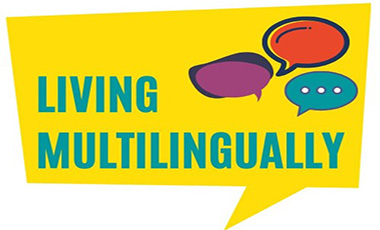Living Multilingually: Online Tools for Empowering Language Learners in Transition
Overview

This Learning Enhancement project has been funded through the HEA and the National Forum for the Enhancement of Teaching and Learning.
| PROJECT TITLE: | Living Multilingually: Online Tools for Empowering Language Learners in Transition |
|---|---|
| PROJECT COORDINATORS: | Dr Mary Farrelly |
| COLLABORATORS: | Dr Stephen Lucek |
| STUDENT COHORT: | UCD Full-time and Part-time Undergraduate and Postgraduate Students, Prospective Students at Second Level |
Background
'Living Multilingually' is a pre/co-curricular initiative that empowers language students and graduates to recognise and assert the versatility of their skillset.
This suite of online resources responds to challenges facing students and teachers of languages and linguistics, at both second and third level. The consultation process carried out in advance of the publication of the government’s Languages Connect strategy (2017) identified eight challenges to living multilingually in Ireland - three of these are especially relevant to our students:
- The global dominance of English.
- The lack of awareness of the opportunities that foreign languages offer for careers and mobility.
- The perceived difficulty of learning languages.
These assumptions and negative perceptions around language learning undermine the confidence of language students, heritage speakers of other languages, and students from homes conventionally perceived as monolingual. ‘Living Multilingually’ offers new ways for students to proactively plan their multilingual journey, make connections between skills and knowledge gained in the classroom and their potential for impact in the world beyond. The project also advances the goal of Languages Connect to ‘actively encourage and support citizens to communicate in multiple languages and appreciate other cultures, enabling people who live here to become global citizens’.
Goals
The project aims to empower students to recognise and assert the value of their experiences as language users and learners. Key to the philosophy of ‘Living Multilingually’ is the understanding that we are all multilingual as we all use language in ways that are unique to us and that change across social and cultural contexts.
The digital resources work to:
- Create a space where every student feels valued for their unique knowledge, skills, and identities.
- Provide supports for students in developing learner autonomy in language learning and cultural development.
- Introduce a range of authentic cultural texts with which students can engage on linguistic as well as personal and emotional levels.
- Challenge perceptions of what it means to ‘do’ modern languages.
For Second Level Students, the Living Multilingually Student Portfolio provides a scaffold to support engagement with the online tools. On completion of the portfolio students will:
- Have a nuanced understanding of what it means to learn languages and live multilingually.
- Be motivated to learn new languages.
- Have begun developing a toolkit of soft skills with which to approach new languages.
- Be able to navigate critical incidents independently.
- Value linguistic and cultural competencies in themselves and others.
The Innovative Approach
Sharing Experiences
Linguistics to contribute anecdotes, reflections, and tips from their own language learning journeys. By facilitating digital encounters between language students, teachers, and researchers, the videos and podcasts created demonstrate how living multilingually allows us to apply both the soft skills and subject specific knowledge of our discipline to tackle personal challenges and become agents for change in the wider world.
Imagining the Multilingual Self
Online games offer participants autonomy in how they interact with the materials, foregrounding the importance of personal choice, decision-making, and initiative in language learning. The resources create a safe space for participants to imagine and explore their potential as multilingual agents.
Sharing Resources
The videos, games, podcasts, and portfolio allow students to share and collect intercultural texts that are meaningful to them. Through curating personal ‘to-do’ lists and exercising discernment in selecting texts that are interesting and valuable to them from a range of viewpoints - personal, linguistic and cultural - participants are empowered to plan the next steps in their language learning journey.
Results
Twenty-eight students shared anecdotes, reflections, and tips from their own language learning journeys and many more contributed their favourite new words to the UCDictionary, creating a bank of resources to motivate, support, and inspire future language learners. The Living Multilingually Portfolio has also been successfully introduced to Transition Year classrooms.
Resources
References
- Bruen, Jennifer, and Niamh Kelly. 2016. ‘Language Teaching in a Globalised World: Harnessing Linguistic Super-Diversity in the Classroom’. International Journal of Multilingualism 13 (3): 333–52. https://doi.org/10.1080/14790718.2016.1142548.
- Diskin, Chloé. 2020. ‘New Speakers in the Irish Context: Heritage Language Maintenance Among Multilingual Migrants in Dublin, Ireland’. Frontiers in Education 4. https://doi.org/10.3389/feduc.2019.00163.
- ‘Foreign Languages Strategy’. 2017. Department of Education and Skills. 2017. https://www.education.ie/en/Schools-Colleges/Information/Curriculum-and-Syllabus/Foreign-Languages-Strategy/.